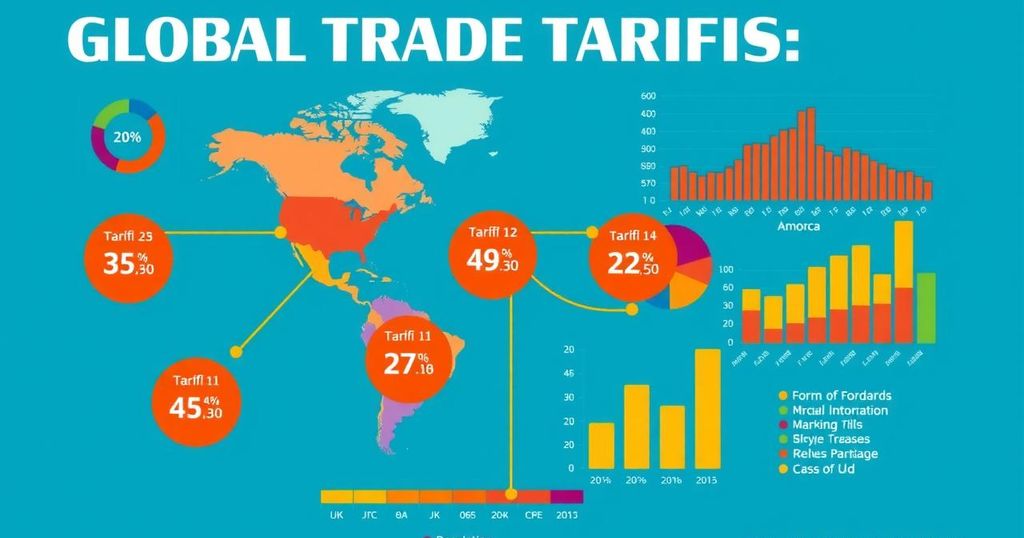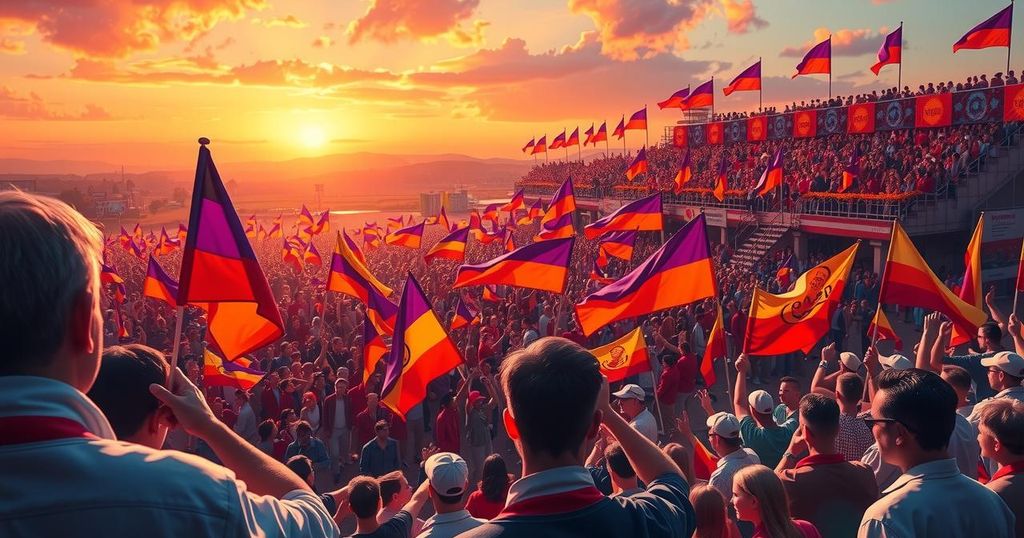Ecuador’s presidential election, scheduled for February 9, sees incumbent President Daniel Noboa vying for a full term against 15 opponents, with crime and economic issues at the forefront. Due to a recent constitutional crisis, Noboa’s current term has been brief, and he faces familiar rivals, including Luisa Gonzalez. Polls suggest he may require a runoff, highlighting a complex electoral landscape amidst pressing societal concerns regarding violence and security.
Ecuador is poised for a significant political event this Sunday, as President Daniel Noboa seeks to secure a full four-year term following his initial election victory 18 months ago. Noboa, at 37, stands as the youngest individual to hold the presidency in Ecuador. Facing a backdrop of escalating crime and economic challenges, he must now compete against 15 opponents, notably including Luisa Gonzalez, a prominent left-wing legislator. This election serves as a referendum on Noboa’s short administration, characterized by controversial security measures amid rising violence.
The upcoming election will occur on February 9, with candidates required to secure over 50 percent of the vote for a clear win. An alternative outcome would lead to a second-round contest on April 13, featuring the two leading candidates. Notably, this election is not solely focused on the presidency; all seats in Ecuador’s 151-member National Assembly are also contested, requiring the elected members to serve for four years.
President Noboa’s term was shortened after former President Guillermo Lasso invoked a constitutional clause, resulting in snap elections. This unprecedented action dissolved the legislature and concluded Lasso’s tenure, allowing Noboa, a former National Assembly member, the opportunity to ascend to the presidency for the remaining term, which he is now seeking to extend.
Polls indicate that Noboa’s chief rival is likely to be Luisa Gonzalez, who previously lost to him by a narrow margin. Although Noboa leads most polls, he may not achieve the necessary majority to avoid a runoff. However, historical data shows that pre-election polls can be unreliable, as demonstrated by Noboa’s initial low registration ahead of the previous election.
Several candidates reappear in this election, including Jan Topic, a businessman advocating tough crime policies. Leonidas Iza, representing Indigenous interests, also returns, emphasizing greater autonomy and opportunities for Indigenous groups. The memory of assassinated candidate Fernando Villavicencio weighs heavily on the race, as his coalition’s integrity remains under scrutiny.
Regarding the National Assembly, polls suggest that Noboa’s party may gain ground, while Gonzalez’s Citizen Revolution party still holds the majority of current seats. As citizens reflect on their choices, a January poll highlighted rising living costs and unemployment as key concerns, although the primary focus remains on crime and insecurity, indicating a societal shift in priorities.
Historically, Ecuador was perceived as a safe region, but recent crime spikes have altered that image dramatically. Murders have surged, leading to Ecuador now recording the highest murder rate in South America. Geographically positioned between major cocaine producers Colombia and Peru, Ecuador has become a battleground for organized crime and violence.
In response to escalating crime, voters appear supportive of harsher security measures. Past elections favored reforms enhancing military involvement in policing and imposing stricter penalties for drug-related offenses. Noboa continues to advocate for stringent security policies, yet concerns regarding abuse of authority and the efficacy of such measures persist, posing a challenge for the legitimacy of his administration.
Ecuador is currently undergoing a crucial presidential election process that will determine the future leadership and direction of the country. President Daniel Noboa is attempting to consolidate power after a brief term following an extraordinary constitutional event that resulted in snap elections. With security and economic stability as pivotal issues, the election encapsulates public sentiment regarding governance and national priorities amid rising crime rates and general dissatisfaction.
In conclusion, Ecuador faces a decisive election that reflects widespread public concern over safety and governance. President Daniel Noboa, navigating a crowded field, must demonstrate his commitment to addressing the violence plaguing the nation alongside economic reform. As crime remains a significant topic among voters, the forthcoming election results will not only impact the presidential race but will also shape the legislative landscape for the next four years, charging Noboa with the responsibility of responding to urgent public needs and expectations.
Original Source: www.aljazeera.com




